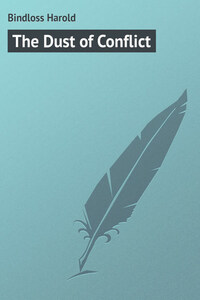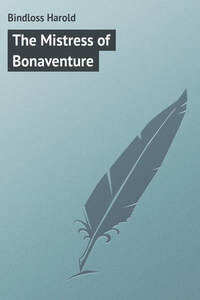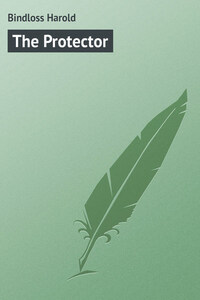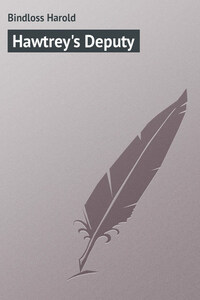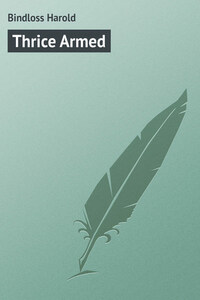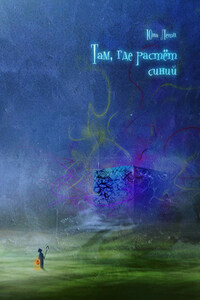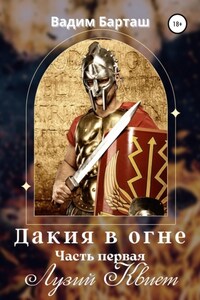I – VIOLET WAYNE’S CONFIDENCE
THE November afternoon was drawing towards its close when Bernard Appleby stood with a gun on his shoulder in an English country lane. It was a costly hammerless gun, but it had been lent to him, and the fact that his right shoulder was sore and there was a raw place on one of his fingers was not without its significance. Appleby, indeed, seldom enjoyed an opportunity of shooting pheasants, and had been stationed at what proved to be a particularly warm corner of the big beech wood. Here he had, however, acquitted himself considerably better than might have been expected, for he had a steady eye and the faculty of making a quick and usually accurate decision, as well as a curious coolness in action, which was otherwise somewhat at variance with an impulsive disposition. These qualities are useful in more serious affairs than game shooting, and it was fortunate for Appleby, who was a poor man, that he possessed them, because they comprised his whole worldly advantages.
A little farther up the lane his kinsman, Anthony Palliser, was talking to a keeper, and though Appleby could not hear what they said, there was something in the man’s manner which puzzled him. It was certainly not respectful, and Appleby could almost have fancied that he was threatening his companion. This, however, appeared improbable, for Anthony Palliser was a man of some little importance in that part of the country, and endowed with an indolent good humor which had gained him the good will of everybody. Still, Appleby had seen that complaisance can be carried too far, and knowing rather better than most people how little stiffness there was in Palliser’s character, watched him somewhat curiously until the keeper moved away.
Then Palliser came up and joined him, and they turned homewards down the lane. They were not unlike in appearance, and of much the same age – Appleby twenty-six, Palliser a year younger. Both were healthy young Englishmen, but there was an indefinite something in the poise of Appleby’s head, and the very way he put his feet down, which suggested who possessed the most character. He had clear blue eyes which met one fearlessly, and into which there crept at times a little reckless twinkle, crisp brown hair, and lips which could set firmly together, while he held himself well, considering that he labored for the most part at a desk.
“What do you think of keeper Davidson?” asked Palliser.
“A surly brute!” said Appleby. “Ill-conditioned, but tenacious. Have you any reason for asking?”
He fancied for a moment that Palliser had something to tell him, but the younger man smiled somewhat mirthlessly. “I don’t like the fellow, and wonder why my respected uncle tolerates him,” he said. “He is certainly tenacious. You have a trick of weighing up folks correctly, Bernard.”
“It is fortunate I have some qualification for my profession, and it’s about the only one,” said Appleby dryly. “Still, it did not need much penetration to see that you and he held different opinions.”
Palliser appeared irresolute. “The fact is, he would have the netting put up in the wrong place, and spoiled what should have been our best drive,” he said. “It was by his bad management they had to put two of the game hampers in the dog-cart, which sent us home on foot. I hope you don’t mind that. It’s a pleasant evening for walking, and you know you don’t get much exercise.”
“Not in the least!” said Appleby. “Don’t make excuses, Tony. It isn’t everybody who would have walked home with me, and it was very good of you to persuade Godfrey Palliser to have me down at all. It is the only taste I get of this kind of thing – one fortnight in the year, you see – and I’m considerably fonder of it than is good for me.”
Palliser flushed a trifle, for he was sympathetic and somewhat sensitive, though his comrade had intended to express no bitterness. By and by he stopped where the lane wound over the crest of a hill, and it was possible that each guessed the other’s thoughts as they looked down into the valley.
A beech wood with silver firs in it rolled down the face of the hill, and the maze of leafless twigs and dusky spires cut sharp against the soft blueness of the evening sky, though warm hues of russet and crimson still chequered the dusky green below. Beyond it, belts of thin white mist streaked the brown plough land in the hollow where Appleby could see the pale shining of a winding river. Across that in turn, meadow and coppice rolled away past the white walls of a village bowered in orchards, and faded into the creeping night beyond a dim church tower and the dusky outline of Northrop Hall. As they watched, its long row of windows twinkled into brilliancy, and the sound of running water came up with the faint astringent smell of withered leaves out of the hollow. Appleby drew in a deep breath, and his face grew a trifle grim.
“And all that will be yours some day, Tony!” he said. “You ought to feel yourself a lucky man.”
Palliser did not appear enthusiastic. “There are,” he said, “always drawbacks, and when there are none one generally makes them. The place is over head and heels in debt, and setting anything straight, especially if it entailed retrenchment, was never a favorite occupation of mine. Besides, a good deal depends upon my pleasing Godfrey Palliser, and there are times when it’s a trifle difficult to get on with him.”
